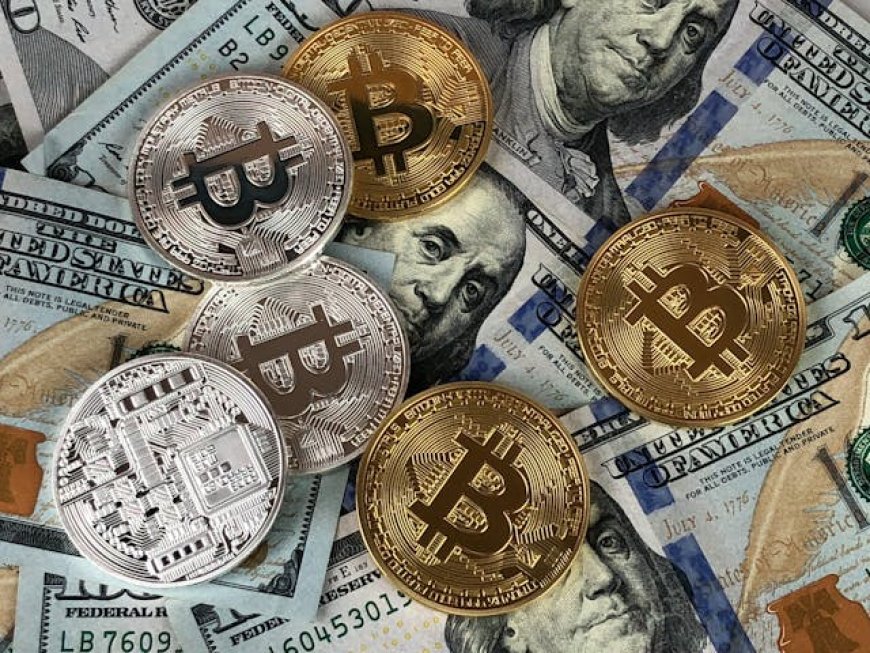Bitcoin: The Ultimate Guide to the King of Cryptocurrencies

What's Your Reaction?







Join our subscribers list to get the latest news, updates and special offers directly in your inbox

Bitcoin (BTC) is the world’s first and most valuable cryptocurrency, revolutionizing digital finance since its launch in 2009. Created by Satoshi Nakamoto, Bitcoin introduced the concept of decentralized, peer-to-peer transactions without the need for intermediaries like banks.
Over the years, Bitcoin has grown from a niche experiment to a mainstream financial asset, attracting investors, traders, and institutions worldwide. In this blog, we’ll explore Bitcoin’s history, how it works, why it’s valuable, and how you can buy, store, and trade it.
Bitcoin is a decentralized digital currency that operates on a blockchain, a public ledger that records all transactions. Unlike traditional fiat currencies, Bitcoin is not controlled by any government or central authority. Instead, it relies on a global network of computers to process and validate transactions through a mechanism called Proof of Work (PoW).
Bitcoin transactions are processed through a blockchain network using miners who validate transactions via Proof of Work (PoW).
Since Bitcoin operates on a decentralized system, no government or bank can censor transactions or freeze funds.
Bitcoin’s value is driven by scarcity, security, decentralization, and growing adoption.
Unlike fiat currencies that can be printed endlessly, Bitcoin has a hard cap of 21 million coins. This scarcity makes Bitcoin deflationary, increasing its value over time.
Bitcoin is often referred to as digital gold because it preserves wealth better than traditional fiat money. Many investors buy Bitcoin as a hedge against inflation and economic instability.
Bitcoin’s blockchain technology ensures that transactions are secure, transparent, and tamper-proof. Unlike traditional banks, which can fail or freeze assets, Bitcoin gives users full financial control.
More businesses, institutions, and governments are adopting Bitcoin. Companies like Tesla, MicroStrategy, and Square hold Bitcoin as a treasury asset. Countries like El Salvador have made Bitcoin legal tender. Financial institutions, including PayPal and Mastercard, support Bitcoin transactions.
Bitcoin can be purchased from cryptocurrency exchanges, P2P platforms, and Bitcoin ATMs. Some of the most popular platforms include:
Bitcoin is stored in digital wallets, which can be categorized into:
Cold wallets provide the highest level of security since they are not connected to the internet, making them resistant to hacks.
Bitcoin’s price fluctuates, but its long-term trend has been bullish. Analysts predict that Bitcoin could reach $100,000 in the coming years due to increasing adoption and the upcoming Bitcoin Halving in 2024.
While Bitcoin has strong growth potential, market cycles can cause price drops, making risk management essential.
Bitcoin is legal in most countries, but some governments restrict or ban its use. Always check local regulations before buying.
Yes. Many companies and retailers accept Bitcoin for payments, including Microsoft, Overstock, Tesla (for some services), and Shopify stores.
Once all 21 million BTC are mined (estimated by 2140), miners will rely on transaction fees for incentives instead of block rewards.
Bitcoin’s blockchain has never been hacked. However, individual wallets and exchanges can be vulnerable to attacks. Use secure wallets and strong security measures to protect your funds.
Bitcoin has historically delivered high returns, but it remains volatile. Investors should research, diversify, and only invest what they can afford to lose.
Bitcoin has established itself as the most dominant and valuable cryptocurrency. Whether you're looking for a long-term store of value, a medium of exchange, or a hedge against inflation, Bitcoin presents a strong investment case.







